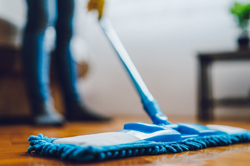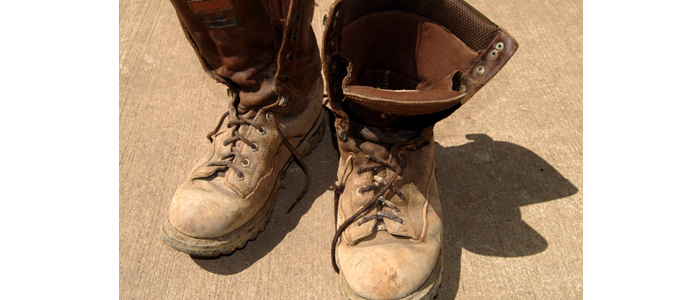Cleaning is crucial to health, safety, and hygiene, and can be categorised into two main groups: domestic cleaning and commercial cleaning. Both can be done domestically by an individual or by a professional cleaning company.
But what is domestic cleaning exactly, how does it differ from commercial cleaning? This blog distinguishes the main differences between the two and explains what materials, equipment, and standards are unique to each.
In some cases, however, people hire professional domestic cleaners to clean their property on their behalf - if they have demanding jobs, for example. To minimise disruption, domestic cleaners usually work during the day while the residents are likely to be at work.
What is commercial cleaning?
A commercial cleaner is a general term for a person or company that provides cleaning services for businesses such as shops, offices, factories, bars, and restaurants. Trained to use powerful cleaning equipment and potentially dangerous chemicals, commercial cleaners generally complete tasks more quickly and efficiently than domestic cleaners.
Like their domestic cleaning counterparts, commercial cleaners usually work during the night to minimise disruptions to the workflow of a business. Generally, most companies prefer to use commercial cleaning services due to their expertise and superior equipment.
The differences between domestic and professional cleaning materials
As commercial cleaning takes place on a larger scale than domestic cleaning, the equipment and materials used are often too powerful to be used in residential areas. Take offices, for instance – significantly more people will pass through an office than a home, so any cleaning chemicals used in a commercial environment must be capable of killing a larger number of germs and bacteria than a standard supermarket product.
Commercial spaces also require more intensive cleaning, which is why commercial cleaning companies use specially designed equipment for use in offices and industrial settings. The cleaning tools used in commercial settings are generally larger – large mops, vacuum cleaners, and other such cleaning products – making them better suited for environments with large floorplans like hospitals, hotels, and restaurants. Domestic cleaning, on the other hand, generally requires simple tools like dustpan sets and cleaning cloths.
The difference in domestic versus commercial cleaning products doesn’t just come down to scale, however. Since commercial cleaning equipment and materials are used by professionals, they’ll usually be of higher quality and capable of cleaning much more thoroughly. In some cases, especially in the case of cleaning chemicals, this might require the use of PPE to stay protected from harmful effects. That means that commercial cleaning products generally aren’t fit for use by domestic cleaners.
The process of cleaning
When it comes to the cleaning process, domestic cleaning is very different from commercial cleaning, and is often more straightforward and done on the spot. Commercial cleaning, on the other hand, tends to be more complex and is therefore divided into different tasks.
Every business has individual cleaning procedures and processes. The system for hotel cleaning, for instance, will be different from that of a hospital. Moreover, to maintain their operating licenses, cleaning companies are required to meet specific health and safety standards.
Cleaning in commercial premises will usually be carried out in a methodical manner established by a cleaning schedule. That means commercial cleaners will come in to do their jobs on set days of the week. In environments where cleaning is essential for maintaining a safe workspace, cleaners might work every day.
Cleaning standards
Businesses' health and safety standards are usually stipulated by the country in which they operate. Every company should adhere to these standards to remain compliant and ensure that their staff and clients are safe. In the UK, the HSE mandates what cleaning has to be carried out to ensure safety in commercial settings.
On the contrary, home cleaning standards are set by homeowners, making domestic cleaning more straightforward and far less regulated in comparison.





Leave a comment